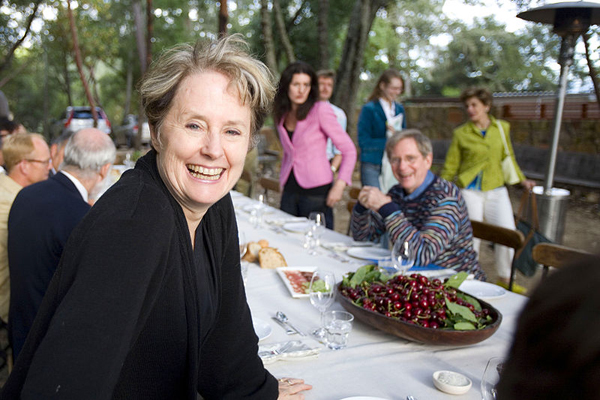
You probably see terms like ‘farm-to-table’, food miles, low carbon diet and sustainable farming in the news and at many restaurants. Let’s take a moment and understand what these terms mean.
When you hear of a farm-to-table or farm-to-fork meal or event, what that typically refers to is the production and use of local food by local consumers. Often but not always, these meals consist of organic or sustainably grown foods.
 Farm-to-table can also refer to a political movement where people are protesting a food system that is increasingly controlled by centralized food companies that often use pesticides and genetically modified foods in order to feed more people at the lowest cost possible. Alice Waters, owner of Chez Panisse in Berkeley is a founder of this movement.
Farm-to-table can also refer to a political movement where people are protesting a food system that is increasingly controlled by centralized food companies that often use pesticides and genetically modified foods in order to feed more people at the lowest cost possible. Alice Waters, owner of Chez Panisse in Berkeley is a founder of this movement.
Food miles refers to the distance that food is transported in reaching your plate. The term originated twenty years ago by Professor Tim Lang of the United Kingdom. He wrote of the potential risks associated with foods produced far away. Not only does the transport create carbon monoxide emissions but there is often less supervision over the fertilizers and cleanliness of those products grown far away.
A low carbon diet refers to the energy used to create the food that you eat. For example, at least 20% of all carbon emissions in the United States relate to the production of food. To reduce the carbon created in making your food, proponents recommend eating less meat or dairy as each require substantial energy to create. Additionally, eat locally sourced foods in smaller portions while recycling and composting.
Finally, sustainable farming can be best understood by recognizing that crops need to be rotated in order to avoid over farming land. Nitrogen needs to be reintroduced to the soil naturally in order to keep the soil rich and fertile.











































